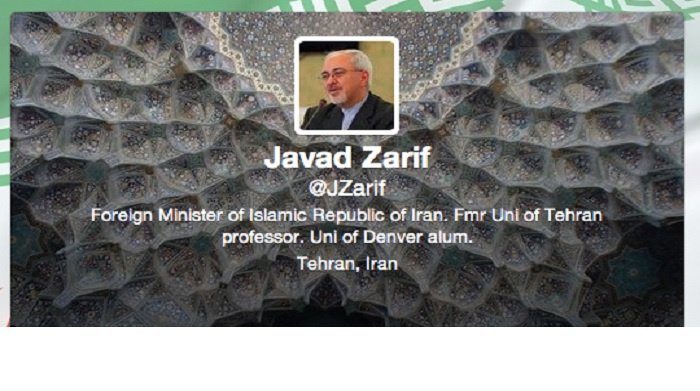Getting No Message Is Also a Message

In “Saudi Arabia’s Reckless Extremism”, an op-ed published in the New York Times on January 10, Zarif alleged that the Saudis had contrived Iranophobia, impeded normalization and dragged the entire region into confrontation. Few thought an article targeting Saudi Arabia would, out of nowhere, prompt harsh remarks from a high-ranking Emirati official.
The article came a few days after tensions over the execution of prominent Shiite cleric Sheikh al-Nimr and the consequent storming of the Saudi embassy in Tehran by enraged protesters. The row led to Saudi Arabia’s severing of ties with Iran, a move later followed by some of the oil-rich country’s allies. Among them was the UAE which downgraded its ties with Iran to the level of charge d'affaires in a cautious measure, in fear of endangering its trade with the now antagonized Iran, as it is home to many Iranian-owned businesses.
Nonetheless, Emirati Foreign Minister Sheikh Abdullah bin Zayed al-Nahyan started a war of words on Twitter. “When I read the Iranian foreign minister's article in The New York Times, I thought it was written by the foreign minister of a Scandinavian country," Nahyan mockingly tweeted in Arabic.
Zarif fired back in a tweet without mentioning Nahyan. "Diplomacy is the domain of the mature; not arrogant nouveau-riche," Zarif said in a tweet on January 13.
In a matter of hours, the tweet prompted backlash from Zarif’s Emirati counterpart who had apparently taken the tweet too personally. He tweeted in response, all of a sudden in English, trying to teach Iran’s chief diplomat some basics of international diplomacy.
"Don't torch, take over or ransack embassies and consulates. Don't take diplomats hostage," Nahyan wrote in his tweet, starting the hashtag #DiploMaturity101.
Zarif and other Iranian officials have strongly condemned the attack while vowing to bring those responsible to justice. Security officials have been reportedly sacked over the incident.
Many Iranians are poking fun at Nahyan’s remarks, on the grounds that UAE was just established in December 1971 whereas Javad Zarif was born in 1960 and is now in charge of a historically powerful and civilized nation’s foreign affairs.
Despite feverish comments by Iranian social media users requesting a jaw-breaking response, Zarif has declined to continue the verbal fight on Twitter as his last status update, regarding the seizure of two US boats and ten mariners by the IRGC and their quick release, still stands.
“Happy to see dialog and respect, not threats and impetuousness, swiftly resolved the #sailors episode. Let’s learn from this latest example,” he wrote.
Western media and officials have hailed Iran’s move as a sign of maturity and warmer relations amid worries among Saudi Arabia and its allies that the looming removal of sanctions against Iran, imposed over the alleged possible military dimensions to its nuclear program, will give the Shiite leaders a stronger hand in the region.
"I think we can all imagine how a similar situation might have played out three or four years ago, and the fact that today this kind of issue can be resolved peacefully and efficiently is a testament to the critical role diplomacy plays in keeping our country safe, secure, and strong," US Secretary of State John Kerry said.

